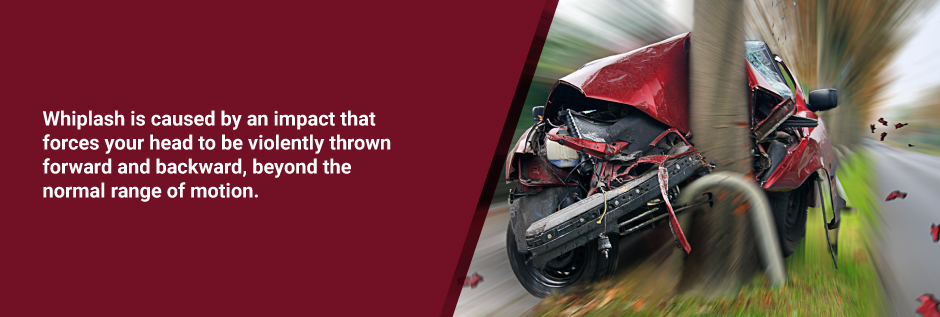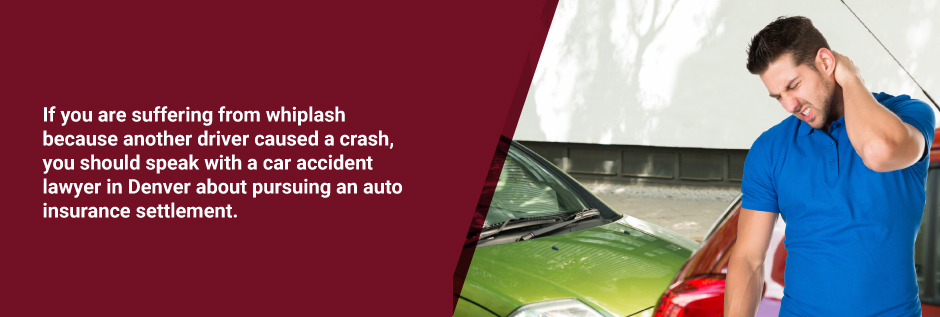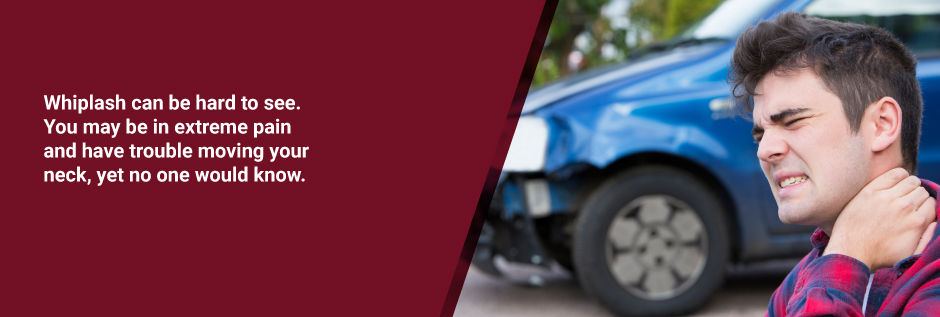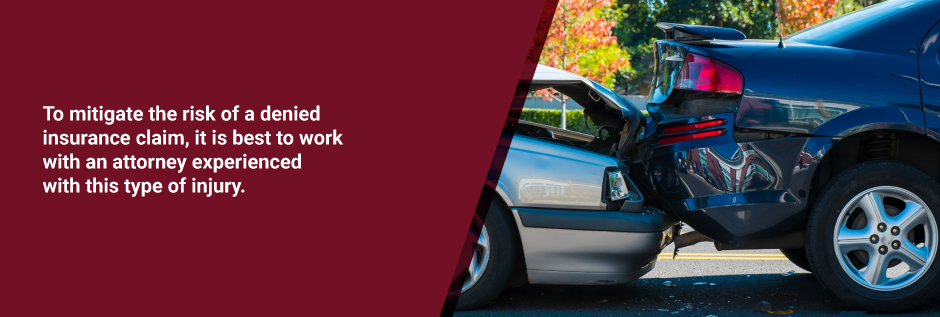When you are in a car crash, you may suffer from a wide range of injuries. A sudden and extreme impact can affect your body in all sorts of ways. A common diagnosis after a collision, particularly a rear-end crash, is whiplash.
What Is Whiplash?

Whiplash is caused by an impact that forces your head to be violently thrown forward and backward, beyond the normal range of motion. This is why it is common with rear-end crashes. The force of the vehicle striking your vehicle from behind throws your head forward and back, like cracking a whip.
This exaggerated and sudden movement can lead to sprains and strains of tendons, ligaments, and muscles in the neck and upper shoulders. A sprain is a stretched or torn ligament, which is a tough band of tissue that connects bones and joints. A strain is a stretched or torn muscle or tendon, which is the cord connecting your muscles to bones.
Symptoms of whiplash vary depending on the type and extent of the injury. According to the Mayo Clinic, you may experience:
- Stiffness
- Pain
- Numbness
- A tingling sensation
- Tenderness
- Limited range of motion
- Fatigue
- Headaches
- Dizziness
You also could experience ringing in the ears, blurred vision, difficulty concentrating, memory problems, irritability, depression, and/or sleep disturbances.
Treating whiplash may require rest, immobilization, pain management, anti-inflammation medication, and physical exercises. In extreme cases, such as a torn muscle, ligament, or tendon, whiplash may require surgery.
Pursuing a Whiplash Settlement

If you are suffering from whiplash because another driver caused a crash, you should speak with a car accident lawyer in Denver about pursuing an auto insurance settlement. You will need a lawyer to review your specific situation to determine the potential value of your claim. There is no specific standard for the value of whiplash claims. Each case is different.
By working with an attorney, you have someone to review the specific factors that may increase or decrease your potential settlement, including:
- Your specific injuries;
- Your medical costs;
- The time you missed from work or school;
- Your lost income;
- The time and money you spend on rehabilitation;
- Your physical pain and suffering;
- Your reduced quality of life; and
- Whether your medical providers document a permanent injury.
Your attorney can also research the outcomes of similar cases in your area, providing an additional basis for the compensation you will demand for your injuries.
Insurance Companies May Challenge a Whiplash Claim

Whiplash can be hard to see. You may be in extreme pain and have trouble moving your neck, yet no one would know. Whiplash can also be difficult to prove unless you have a severe underlying injury that requires serious medical intervention.
For example, a herniated disc will be documented by your physician, and it may require surgery and physical therapy to repair. A stretched muscle is painful and hard to recover from, yet not as thoroughly documented.
Because of this, insurance companies are more likely to challenge whiplash claims than other injuries. The insurer may claim you are not suffering from whiplash or that your injury is not as extensive or painful as you claim.
Contact a Trusted Whiplash Injury Attorney

To mitigate the risk of a denied insurance claim, it is best to work with an attorney experienced with this type of injury. A lawyer will help you see the right doctors and document your injury.
Then, they will gather the proper medical records and other proof of your injury to submit to the insurer. They can make it difficult for the insurer to deny your injury and your claim.
If you have been diagnosed with whiplash due to a motor vehicle collision, contact a Denver personal injury lawyer at Donaldson Law, LLC or call us at (303) 458-5000.




